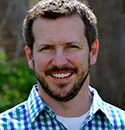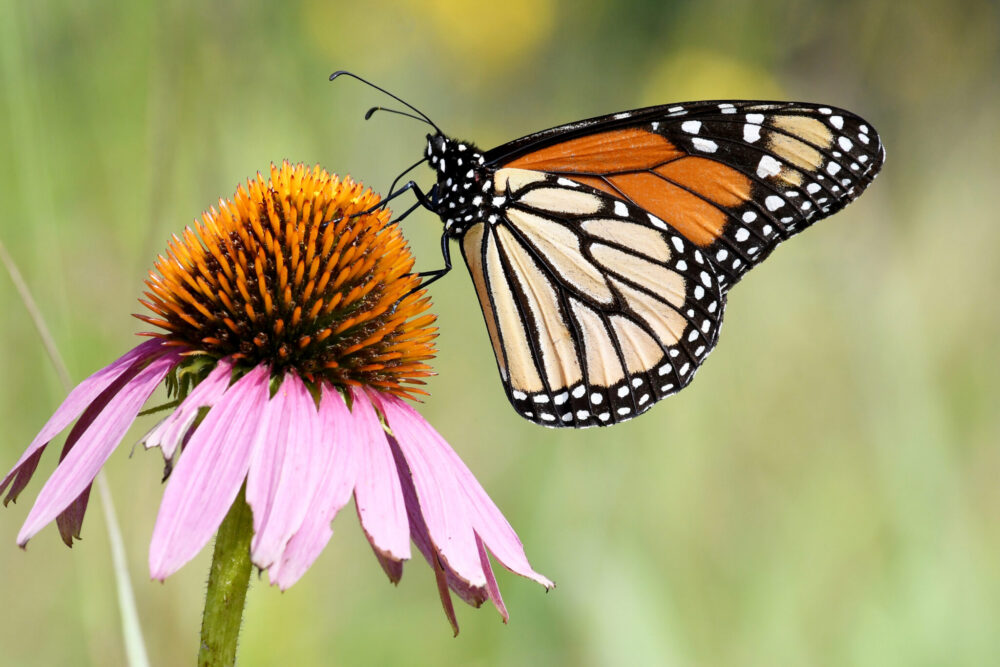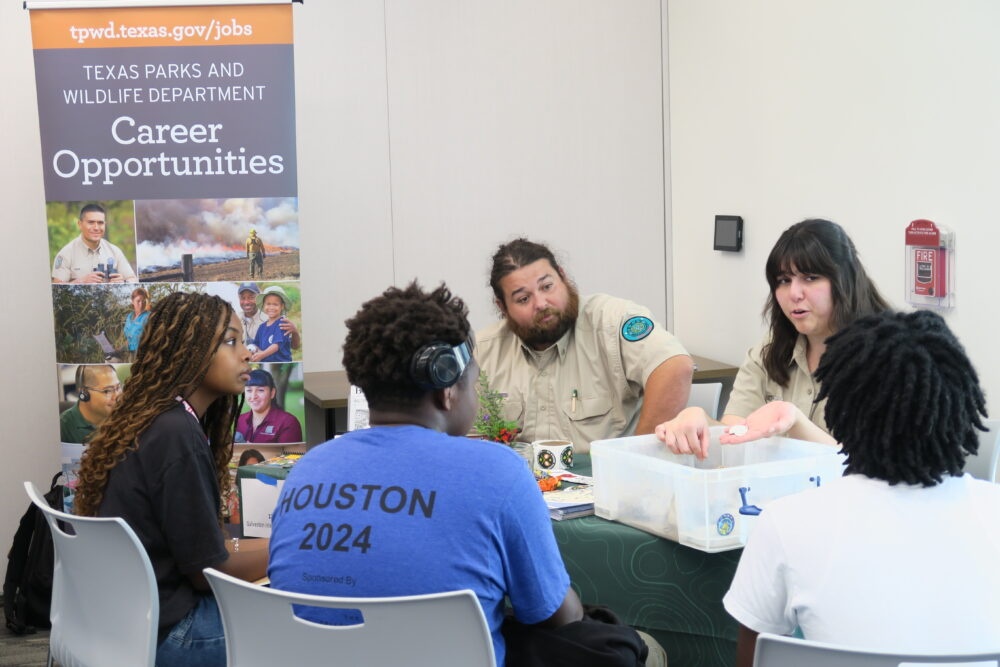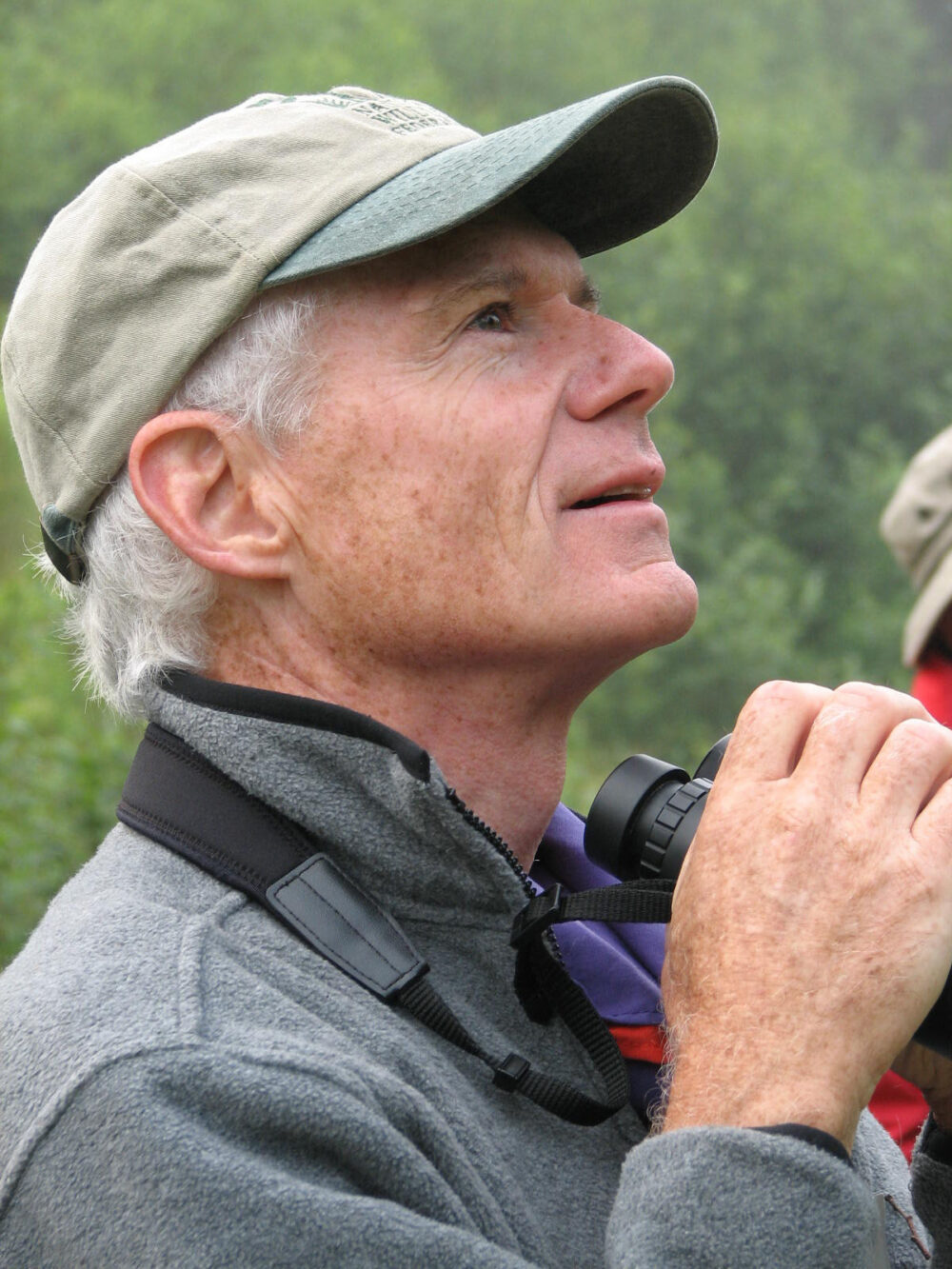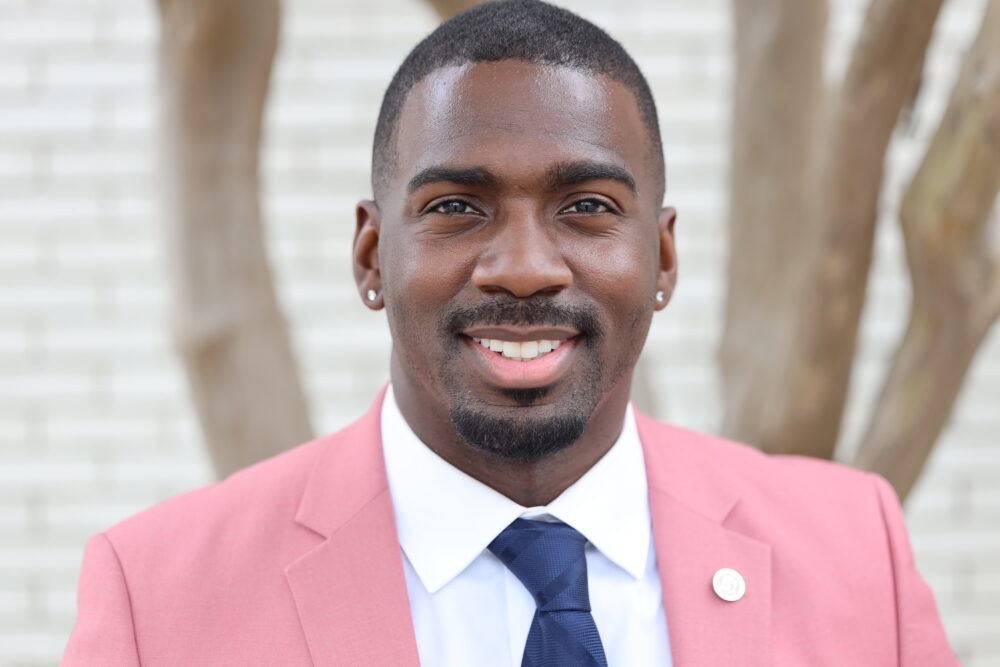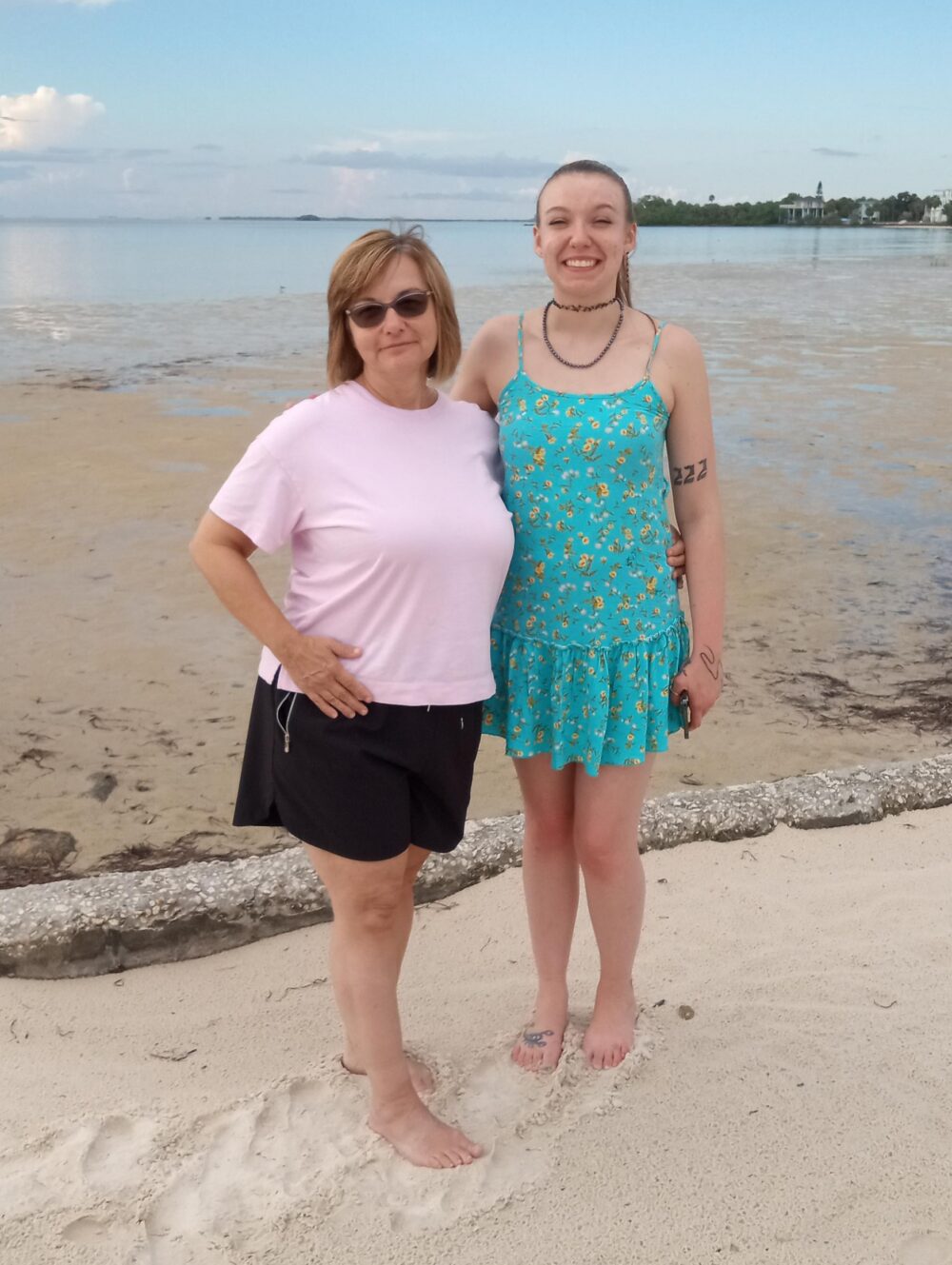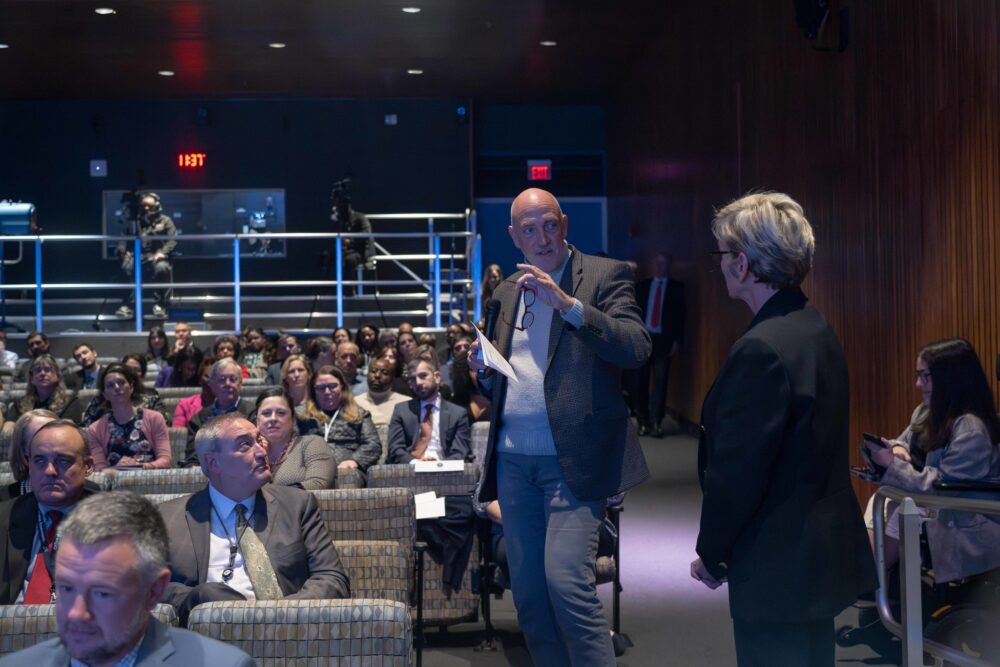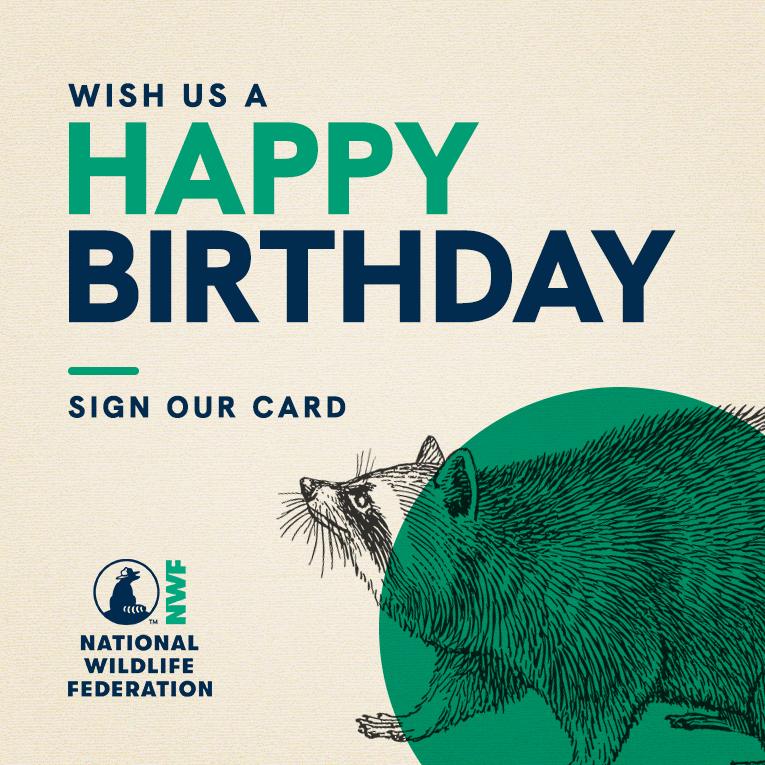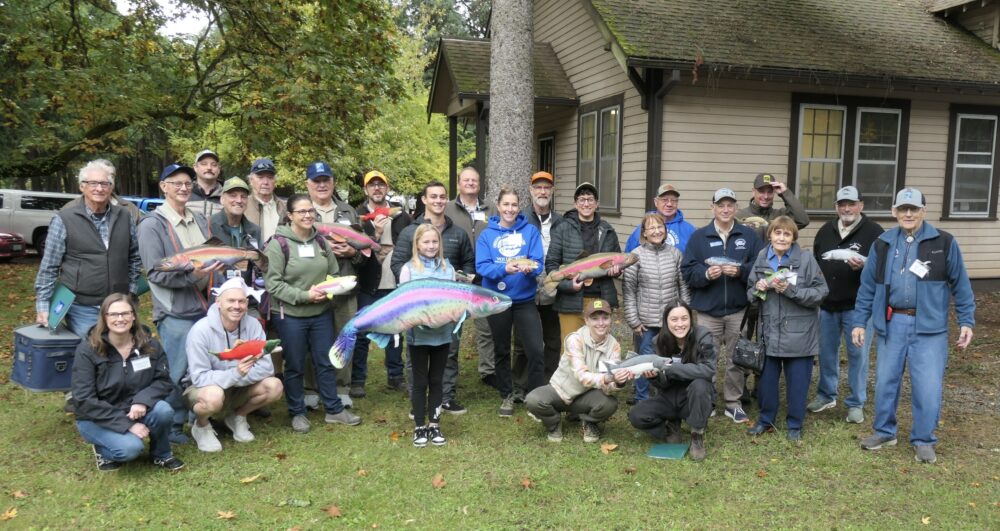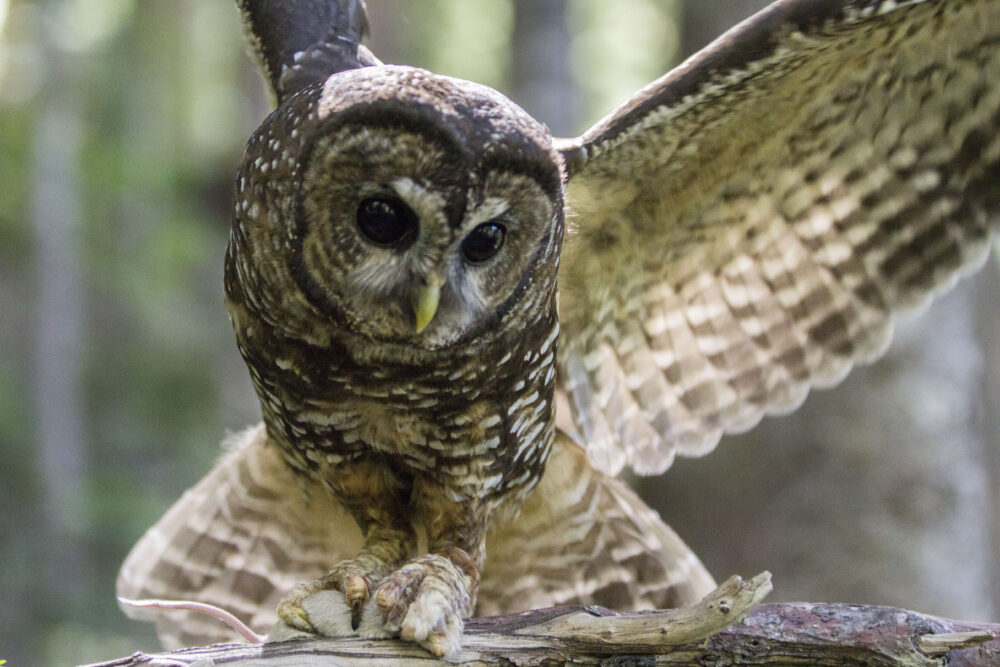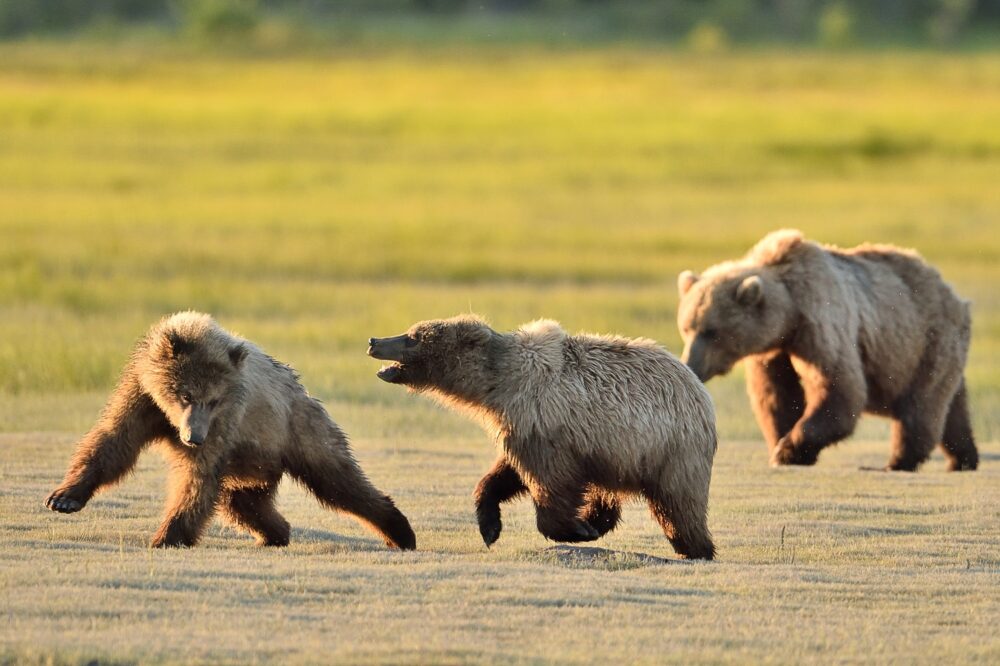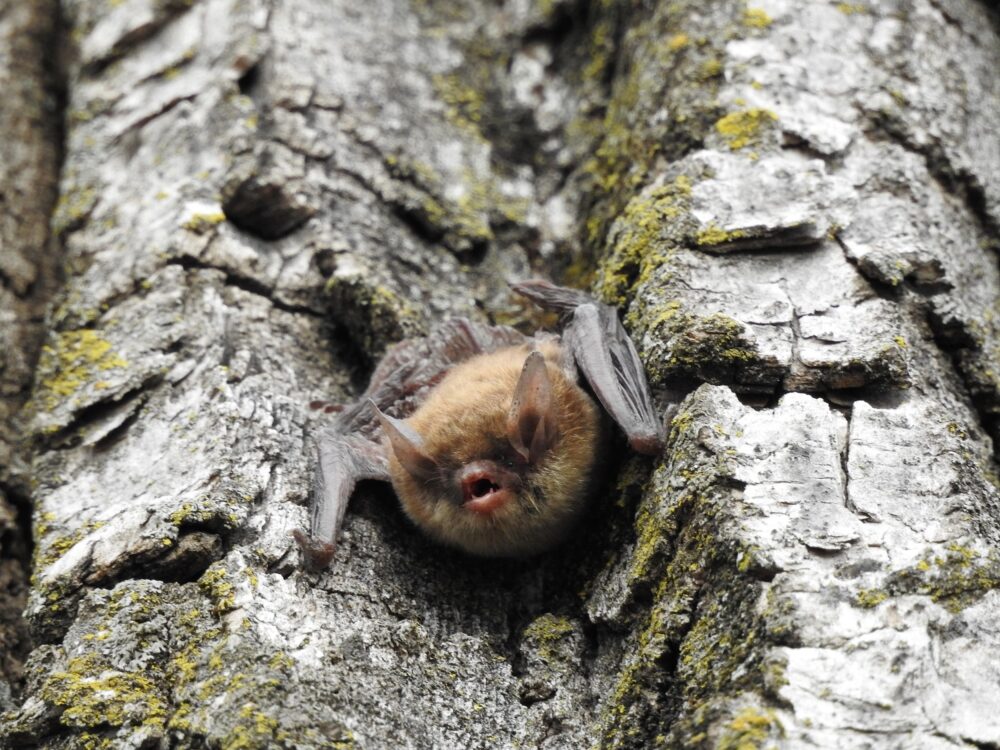We have much more to do and your continued support is needed now more than ever.
Top 10 Unsung Heroes of 2010′s Gulf Oil Disaster

TIME magazine recently named the Gulf oil disaster as America’s biggest news story of 2010. While the National Wildlife Federation will continue working to focus attention on the disaster and its impacts, as 2010 draws to a close, we also wanted to highlight some of the disaster’s unsung heroes – the people who donated their time, helped pull together resources, and in some cases even put their own careers on the line to make a difference.
This list isn’t meant to be comprehensive, but just a sampling of those who stepped up in a time of crisis – for every Dr. Ian MacDonald, there are hundreds of other scientists working to monitor the disaster’s impact and determine the best response.
It’s a small way of saying thanks to these friends of Gulf Coast’s people and wildlife:
Erin Kenny
The senior at New Jersey’s Toms River High School South organized a concert called Sea It Through, raising over $5,000 for NWF’s Gulf Oil Spill Restoration Fund. Hundreds of kids across the county like Erin helped raise not only funds to support resources for restoration, but awareness at the local level that we all share responsibility for helping the Gulf recover.
Ryan Lambert
The south Louisiana fishing and hunting guide traveled to Washington, DC to talk directly to members of Congress and their staff. Lambert focused not only about the impacts of the Gulf oil disaster, but how communities and ecosystems had already been weakened by coastal wetland erosion and Hurricane Katrina. “Now, with millions of gallons of oil entering this fragile ecosystem from the Deepwater Horizon oil spill, never before has our national treasure been in more jeopardy than it is now,” Capt. Lambert told his audience on Capitol Hill.
Dr. Ian MacDonald
BP pushed a paradox in the early days of the Gulf oil gusher, both claiming there was “just no way to measure it” and that it was a preposterously-low 200,000 gallons a day. Instead of demanding an accurate figure, the federal government went along with BP’s smokescreen. But Dr. Ian MacDonald spoke out, saying that if BP couldn’t (or wouldn’t) measure the gusher, the scientific community would gladly help. Later, we learned the true figure might’ve been as high as 2.52 million gallons a day. The Florida State University oceanographer’s research also helped prove the BP oil continued lurking in the Gulf threatening wildlife long after the well was capped.

Diana Ferrell
Diana has been one of the top volunteers with NWF’s Gulf Surveillance Network. Long after BP declared the Gulf clean and started packing up, volunteers like Diana continued finding oil on Gulf beaches. In all, NWF’s volunteers conducted over 5,000 surveillance reports, in the heat, on the water and monitoring the coast line for all forms of wildlife. And wildlife advocates all across the country played a critical role in raising awareness of the unfolding disaster & demanding an effective response, submitting over 188,000 emails, phone calls and letters to the editor urging key administrative and legislative decision-makers to respond boldly. In one of the most effective examples, outcry from NWF members over BP’s apparent lack of concern for the fate of endangered sea turtles caught in its oil “burn boxes” led the federal government to direct BP to ensure trained wildlife professionals were on board their boats to conduct surveillance prior to burns.
Alyssa Milano & Keith Powell
Alyssa spent months asking her Twitter followers to donate to NWF’s Gulf Oil Spill Restoration Fund, answered phones and presented wildlife facts on CNN’s Gulf telethon, and issued this seductive challenge to the Old Spice Guy: “You must make a $100,000 donation to the National Wildlife Federations Gulf Oil Spill Restoration Fund. Are you strong enough?”
[youtube]http://www.youtube.com/watch?v=WVkqOfa936U[/youtube]
“Jealous” of all the attention Alyssa was lavishing on the Old Spice Guy, actor Keith Powell of 30 Rock fame tried to woo Alyssa away by making videos of his own focusing attention on the Gulf oil disaster. His efforts raised thousands of dollars for NWF’s Gulf Oil Spill Restoration Fund.

Jane Lyder
When Louisiana Gov. Bobby Jindal rushed to build sand berms in an attempt to block oil from coming ashore, the Interior Department’s deputy assistant secretary for fish, wildlife and parks raised concerns that, because sand dredging could damage already-eroding barrier islands, the berms could do more harm than good. Lyder found herself the victim of withering personal attacks from berm backers. But report from the BP spill commission just last week vindicated concerns from Lyder and others, saying the berms cost $220 million while stopping just 1,000 barrels of oil.
Bob Marshall
A Pulitzer Prize-winning outdoor writer, Bob Marshall of the New Orleans Times-Picayune has delivered some of the best reporting on the disaster’s impacts on coastal Louisiana. He’s also been willing to lend his voice to advocate for action, recently editorializing that Louisiana is being battered by an abusive relationship with Big Oil.
Rep. Ed Markey
The chair of the House Select Committee on Energy Independence & Global Warming demanded full transparency from BP and his efforts helped lead to live spill cam video becoming available to the public. Rep. Markey also fought for comprehensive, bipartisan legislation to respond to the disaster, improving safety to protect workers and wildlife and closing tax loopholes that benefit oil companies (unfortunately, the Senate has yet to follow suit).
Dr. Riki Ott & Patty Whitney
The devastation of the Exxon Valdez spill took years to fully reveal itself, with ripple effects still being felt today. Immediately after the disaster began, Dr. Riki Ott traveled to Louisiana to share Prince William Sound’s story and warn residents of the potential dangers ahead. Patty Whitney of Bayou Interfaith Shared Community Organizing was among those willing to stand up against Louisiana’s addiction to oil, telling the New York Times, “When is our government going to adapt to new energy sources that aren’t harmful to our environment and the people who depend upon the environment?”
 The Gulf walrus
The Gulf walrus
BP’s official response plan for oil spills in the Gulf of Mexico included references to “sea lions, seals, sea otters [and] walruses.” That revealed two things: That BP sloppily copied and pasted portions of its Gulf response from previous Arctic exploratory planning; and that regulators were so eager to green-light drilling that they never even read disaster response plans. The fictional Gulf walrus became a symbol of the clumsy rush to drill and calls to save the Gulf walrus provided brief moments of much-needed comic relief.
I could spend all day telling you about the great work done in the Gulf. Others who deserve recognition include:
- The National Wildlife Federation’s Dr. Doug Inkley, who worked tirelessly to communicate scientific information about threats to Gulf ecosystems in an easy-to-understand way
- Louisiana Wildlife Federation Executive Director Randy Lanctot, who championed of coastal Louisiana restoration long before the oil disaster & is working to keep it on the national agenda
- Sen. Bill Nelson of Florida, the only U.S. senator from the Gulf who warned of the possibility of a major oil disaster while steadfastly opposing expanded offshore oil & gas leasing
- Wyland, an accomplished painter, sculptor, photographer, writer & SCUBA diver who was among the earliest & loudest national voices to raise concerns about long-term impacts to Gulf communities & ecosystems
- David Godfrey of the Sea Turtle Conservancy, who helped coordinate turtle nest relocation
- Cindy Dohner, the U.S. Fish & Wildlife Service’s Southeast Regional Director who took the lead coordinating the initial FWS response
- Anne Thompson and Rachel Maddow of NBC News and Anderson Cooper of CNN, who spent countless hours deep in the heart of the communities most affected by the disaster
- Natalie Portman, Jack Johnson, Gloria Reuben, Ryan Theriot, Debi Mazar and countless other celebrities who used their star power to raise funds and awareness
Why are we highlighting all these unsung heroes now? Because while the Gulf oil disaster is fading from the national spotlight, its impacts will linger for years or even decades to come. The Gulf needs heroes now as much as ever.
To learn more about the National Wildlife Federation’s response to the Gulf oil disaster and find out how you can help, visit NWF.org/OilSpill.

